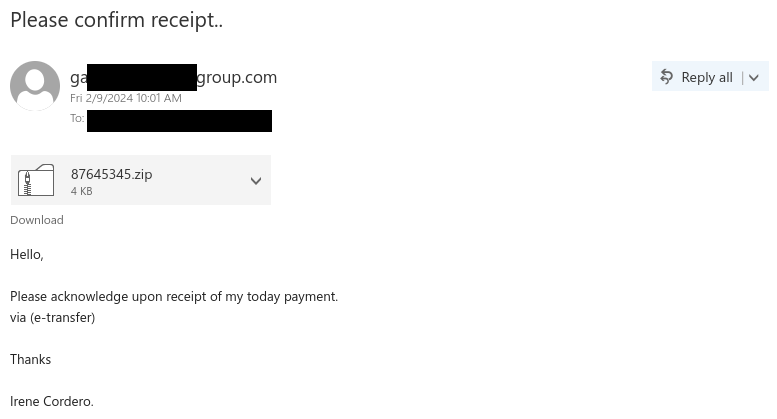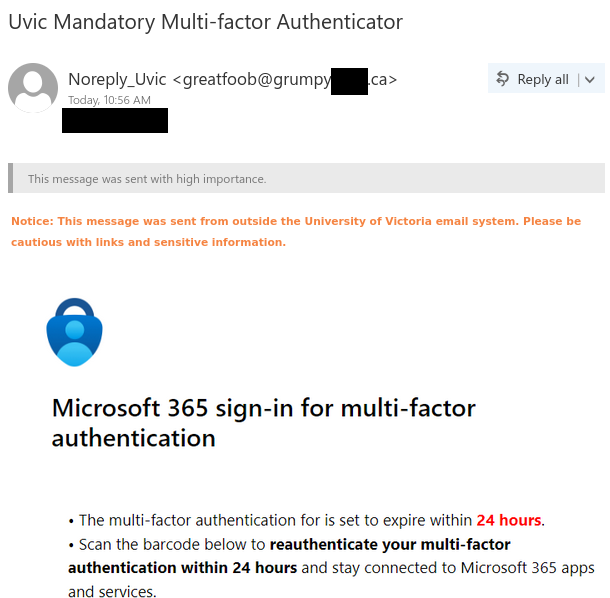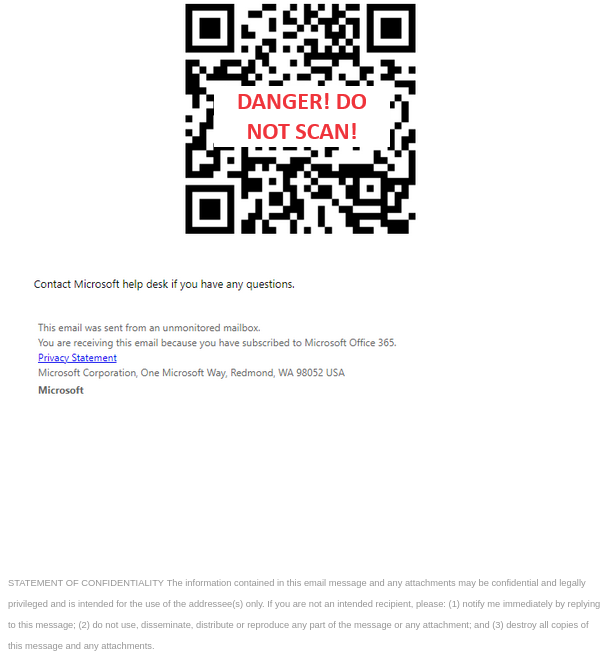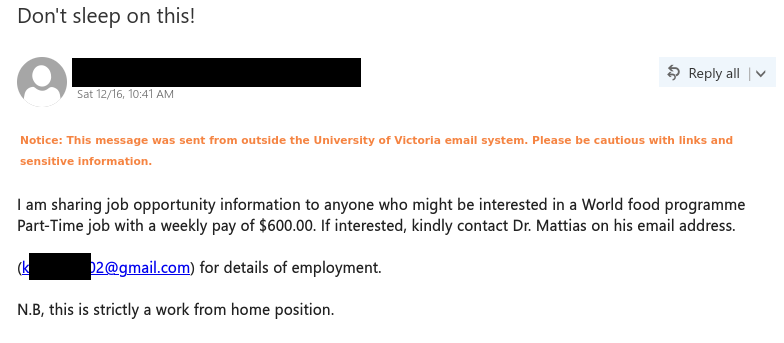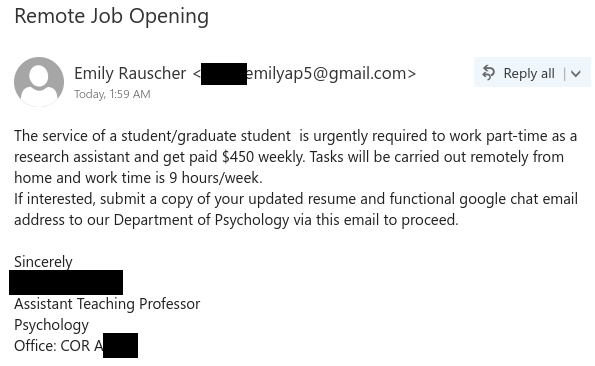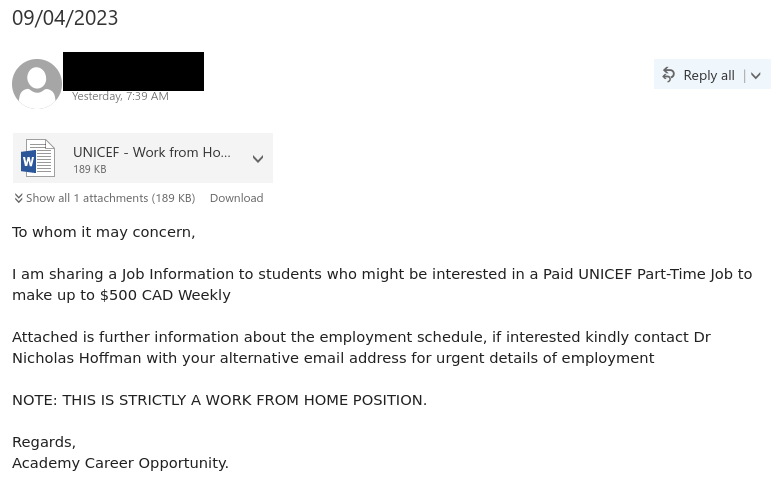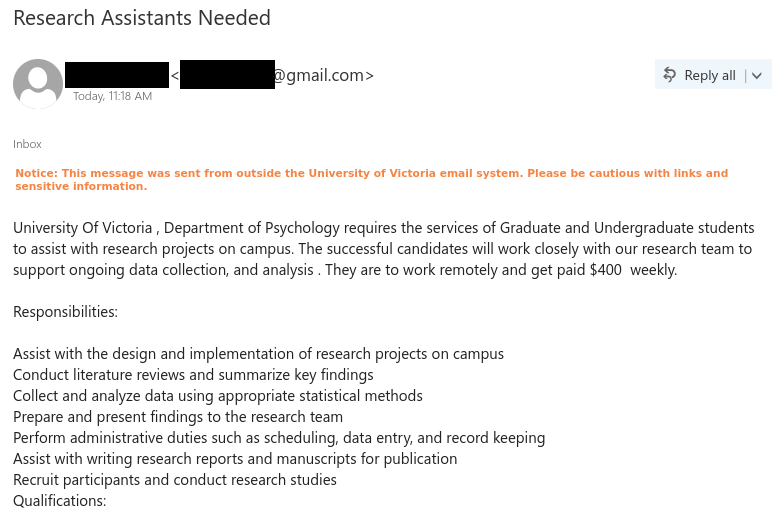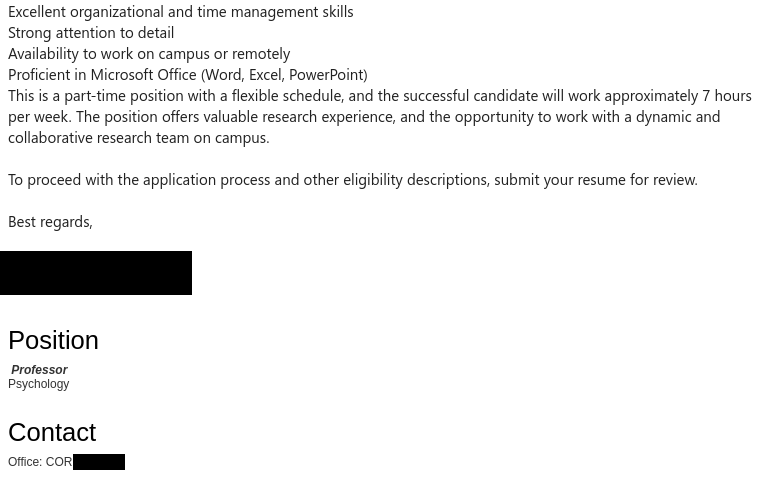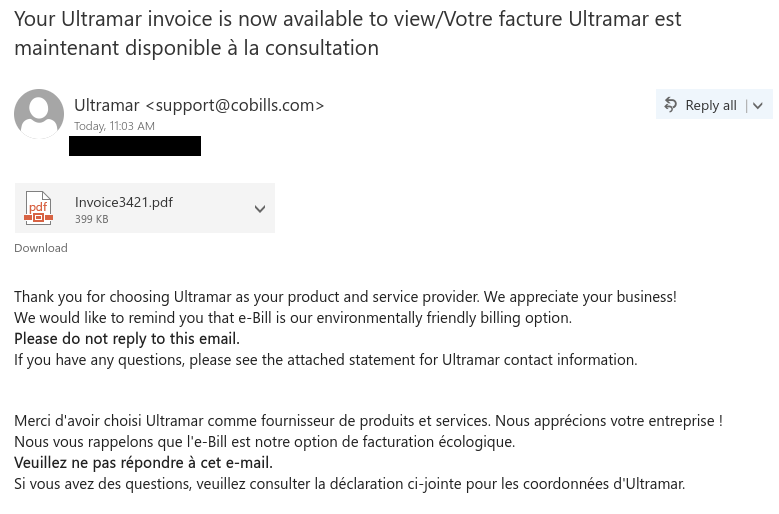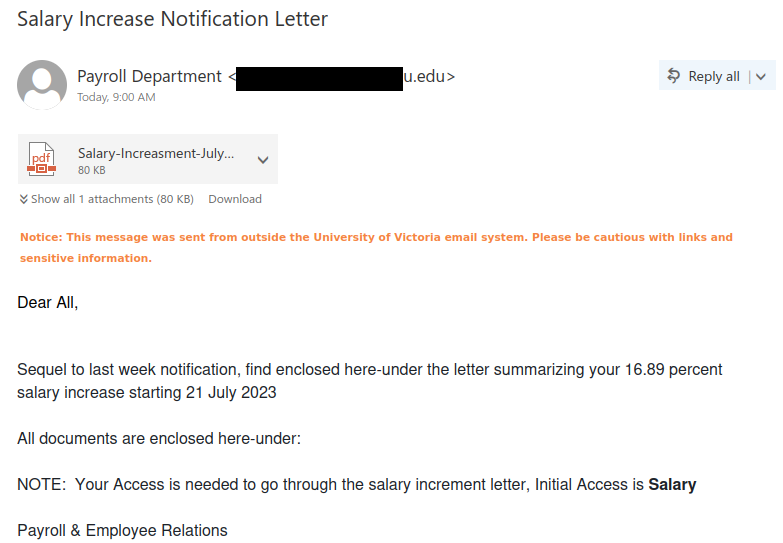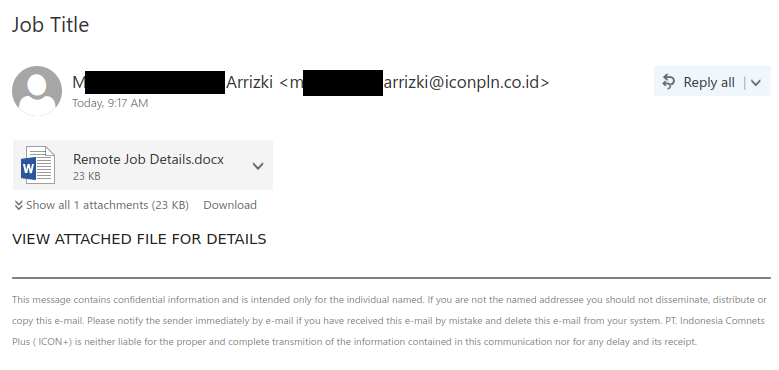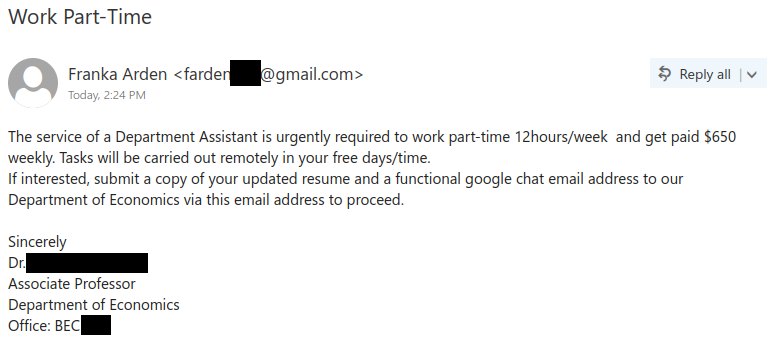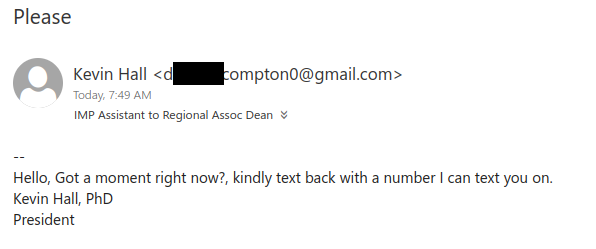If someone you know (or at least had previously written to) had their mailbox compromised, the malicious actor who compromised it may try to target you by taking an old legitimate email thread and sending a new reply with either a malicious link or attachment. This trick is called thread hijacking and attackers use it to make their phishing attempt look more legitimate.
Thread hijacking cases often link to malware, so be extra careful around links or attachments until you’re able to confirm they’re safe. Be wary of unexpected replies to email threads that are very old or replies whose contents don’t seem to match the context of the original email. If the reply seems off to you in any way, don’t click on any links or attachments until you can check with the person through a different contact channel that you know is safe (e.g.: phone, video call or asking in person).
It can also be helpful to check the sender address for the reply. If it is unfamiliar or doesn’t match an email address that you already have for the person you had written to, the email is almost certainly a thread hijacking case.

Subject: [EXT] [****-ugrad-dept-****] FW: *UPDATED FORM* [faculty redacted] Undergraduate Achievement Bursaries: Application forms 2021-2022
From: [redacted] Administrative Officer / UVic <EEmard@irorica*****.com>
Notice: This message was sent from outside the University of Victoria email system. Please be cautious with links and sensitive information.
Hi there,
Please review some latest documents for your department project:
https://outlet******.cl/met/?76539721
If you’ll have any questions, Please contact me.
From: [faculty redacted] Deans Assistant
Sent: September 28, 2021 10:33 AM
To: [redacted]
Cc: [redacted]
Subject: *UPDATED FORM* [faculty redacted] Undergraduate Achievement Bursaries: Application forms 2021-2022
This year, 13 bursaries of $1,500 each will be awarded to exceptional students in the Faculty of [redacted]. Students should be advised to return completed forms to the Office of the Dean by November 1, 2021.
TERMS OF REFERENCE:
Achievement Bursaries recognize undergraduate students who have demonstrated outstanding commitment to the pursuit of excellence in their endeavors. [Redacted] and other areas where individual expression becomes public are recognised through these bursaries. Recipients must have demonstrated financial need and a minimum 3.5 sessional grade point average for students continuing at UVic, or a 70% admission average for students commencing post-secondary studies for the first time.
University officers will distribute application forms to prospective students, who will complete and return them to the Office of the Dean, Faculty of [redacted] by the deadline.
